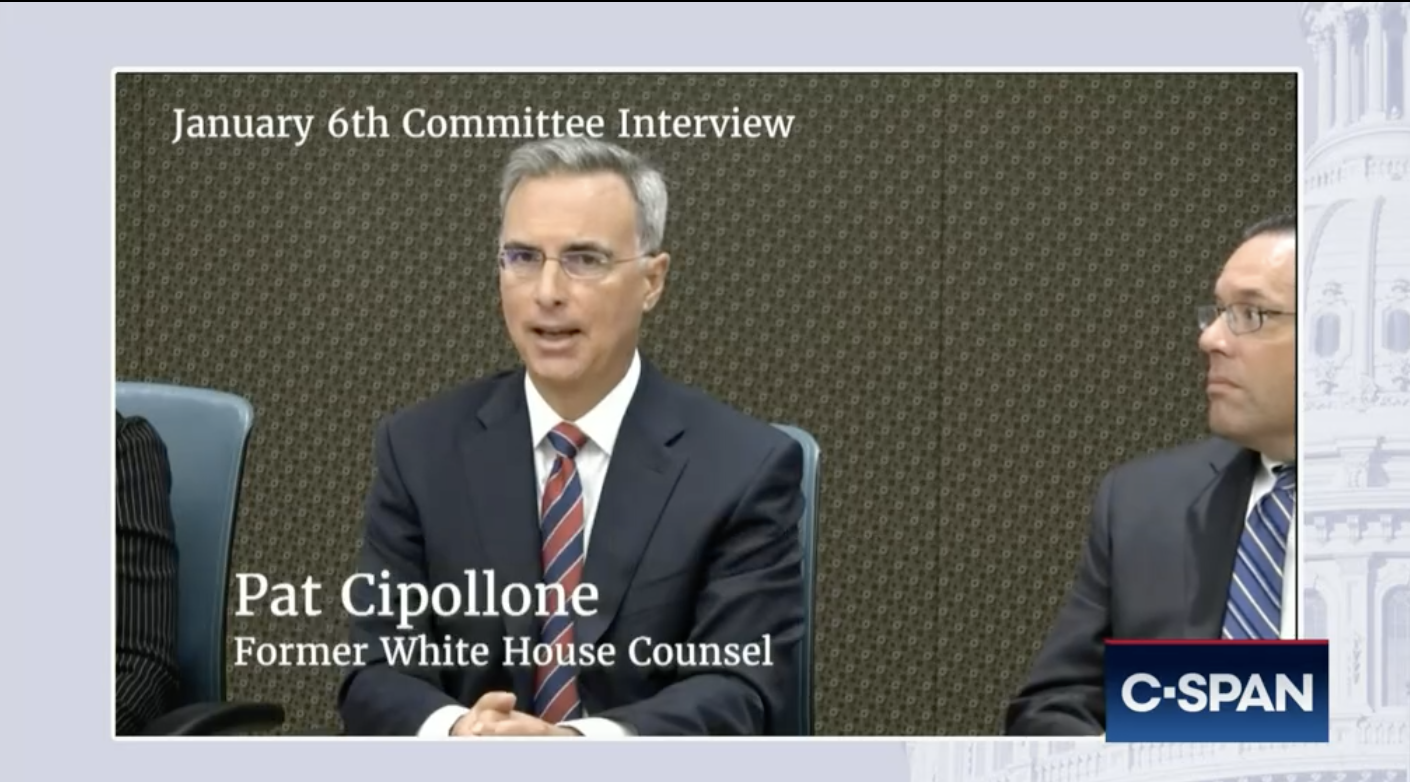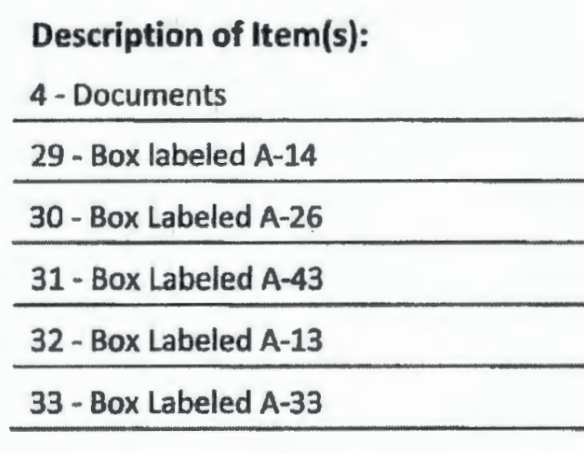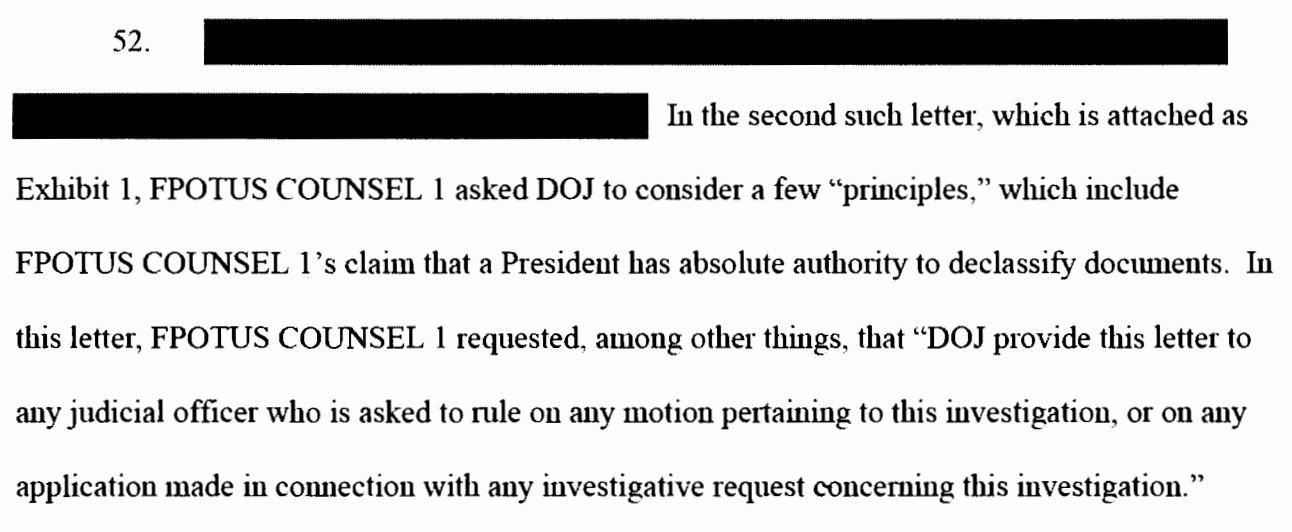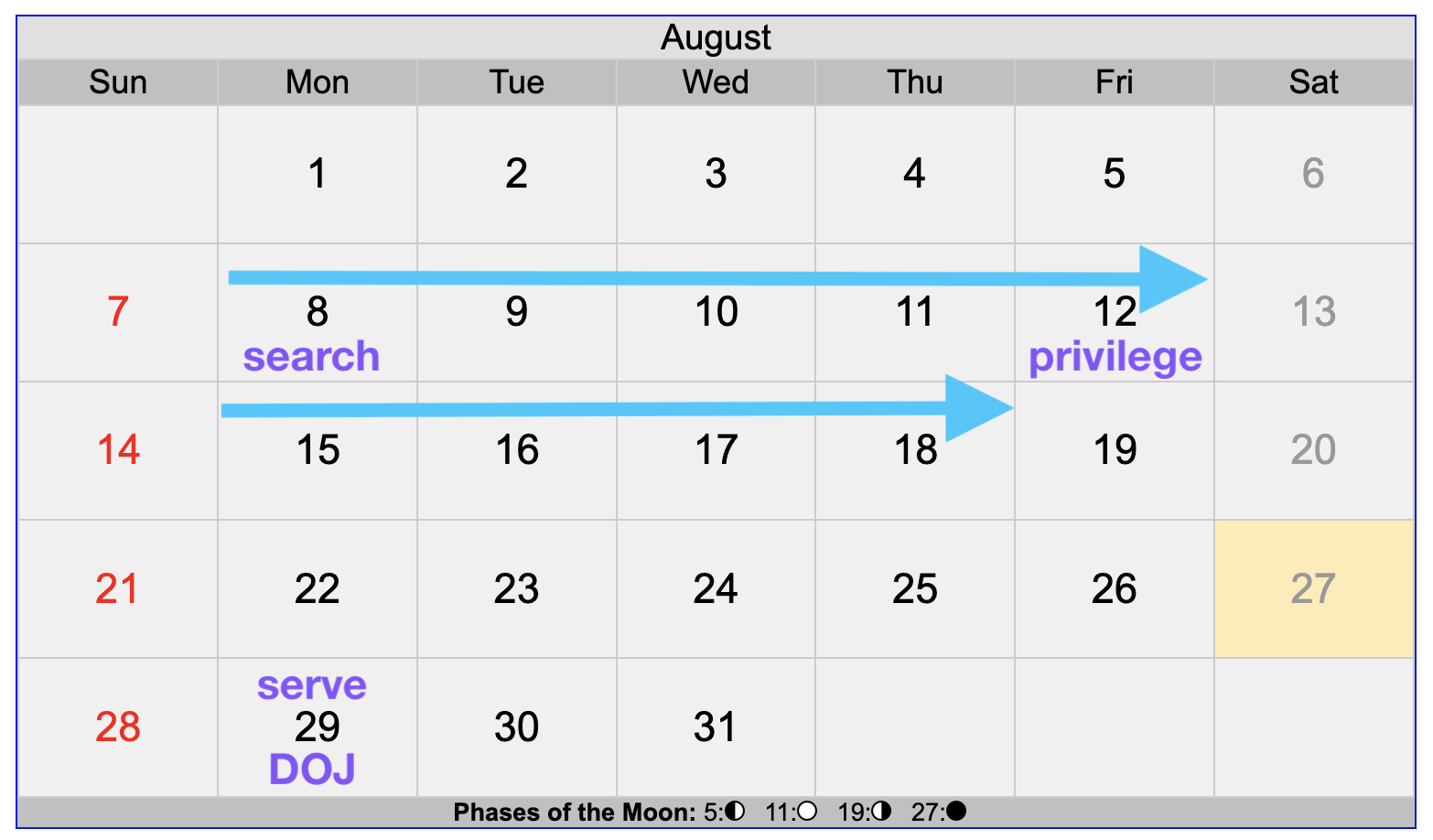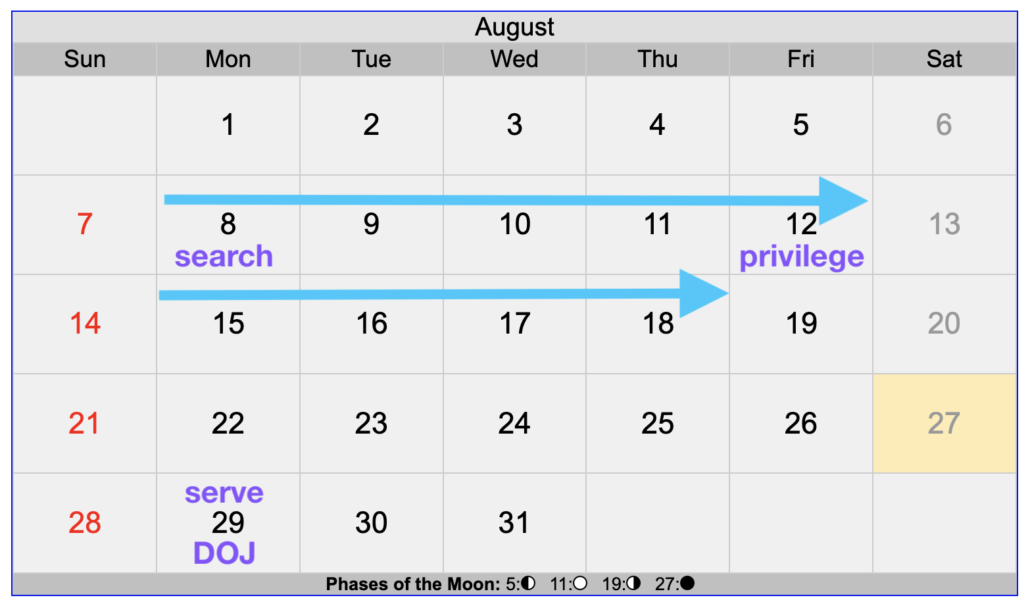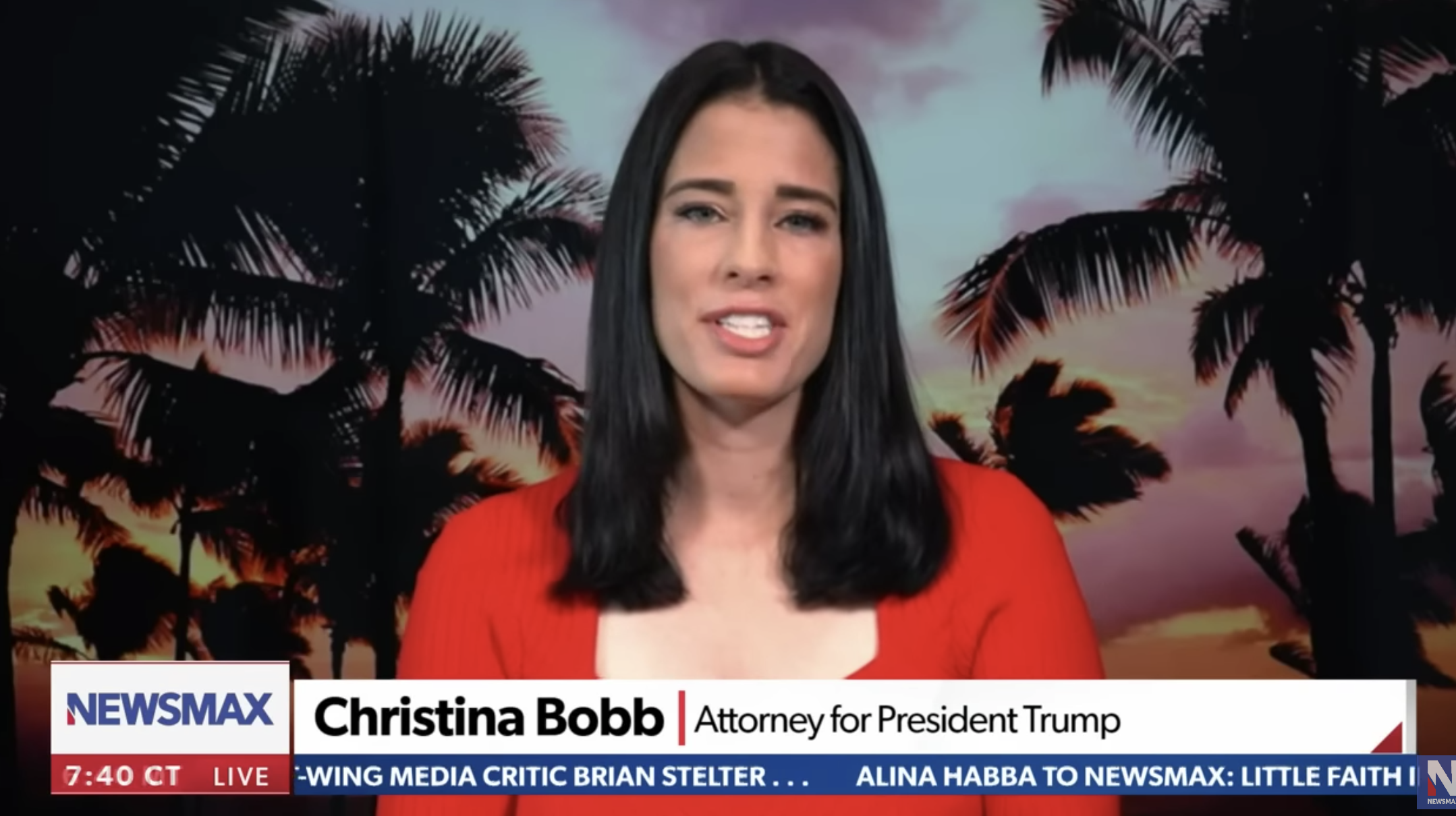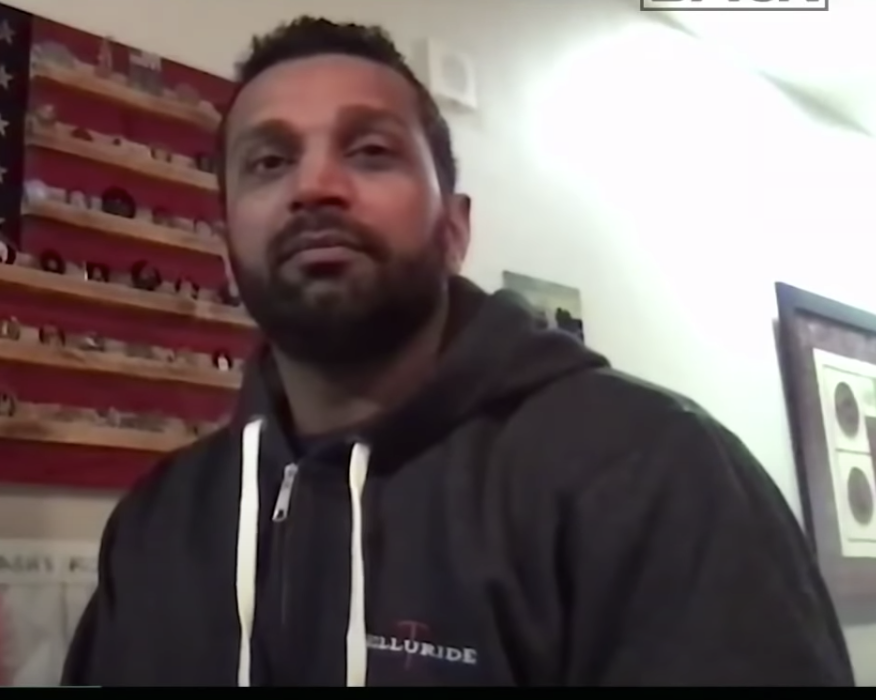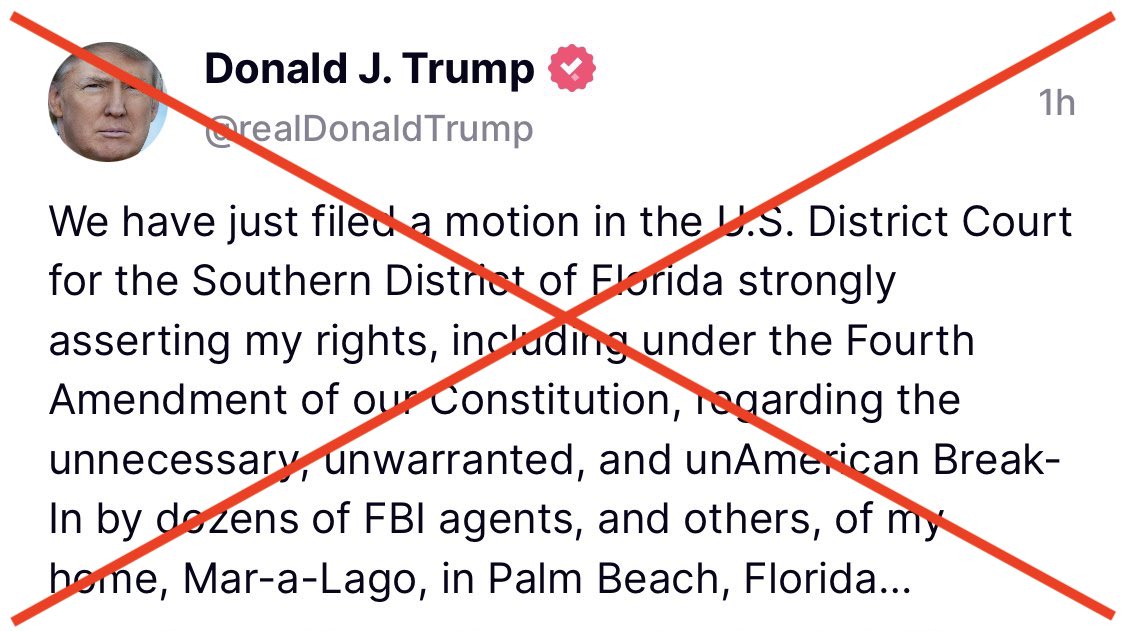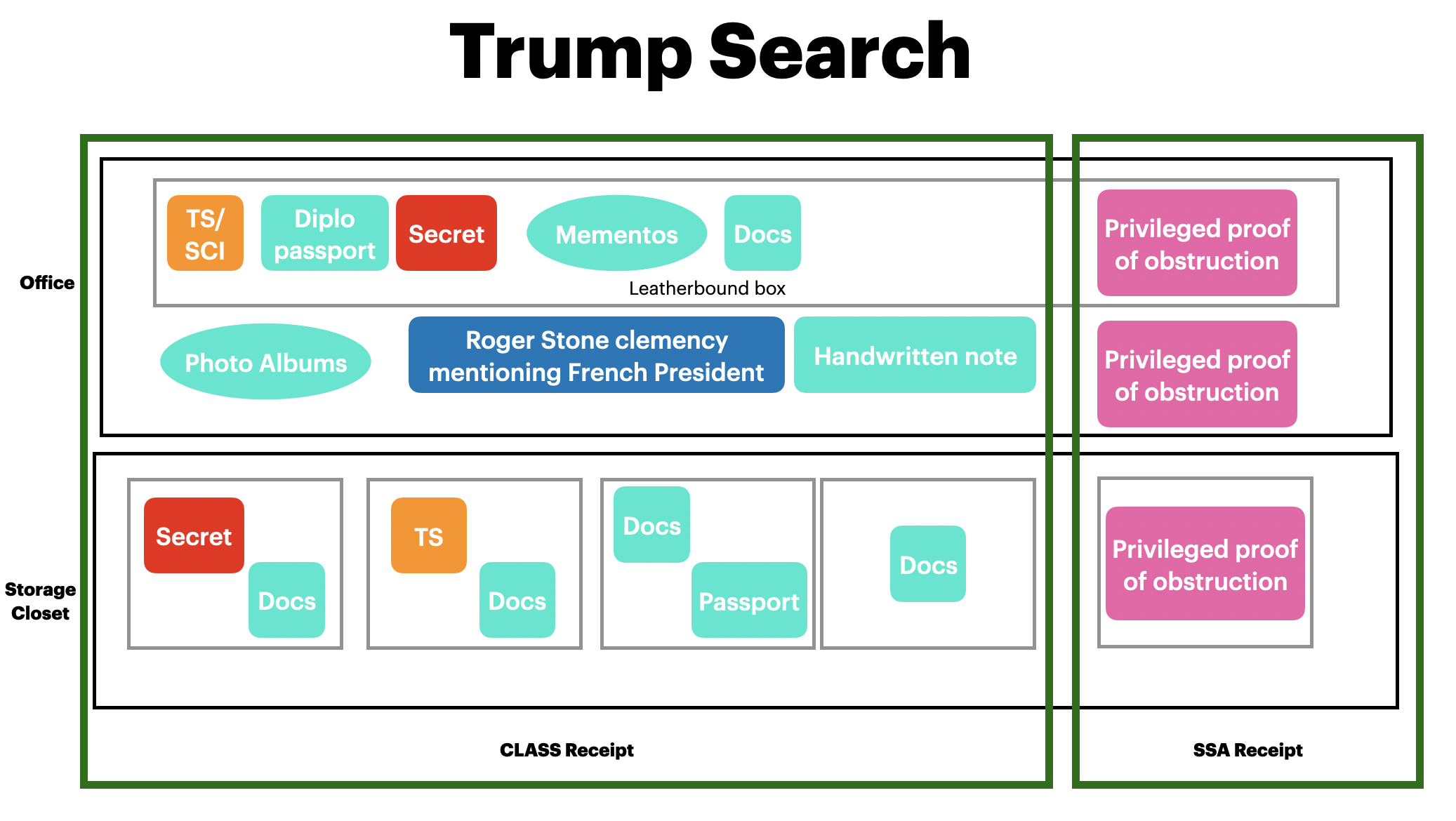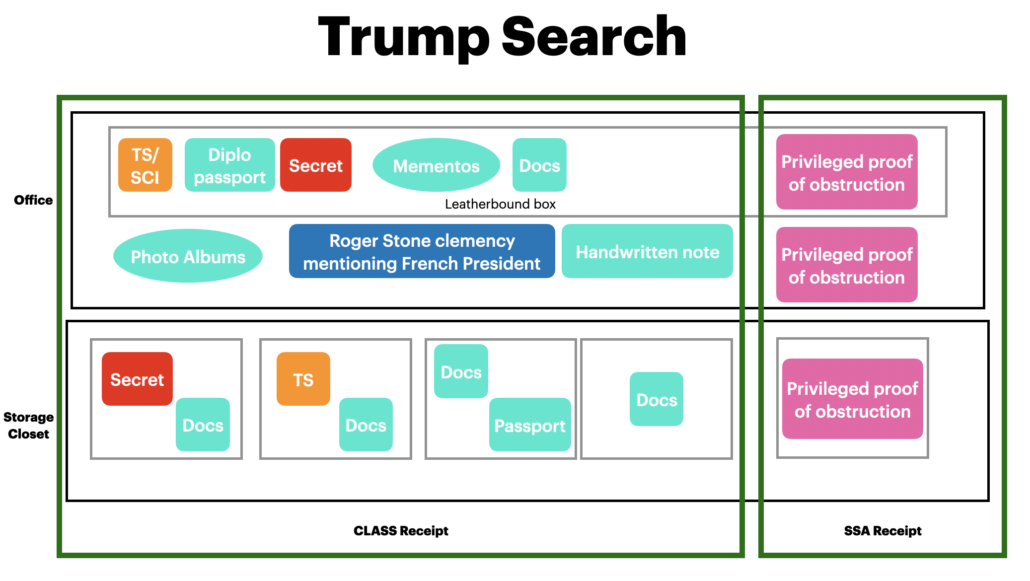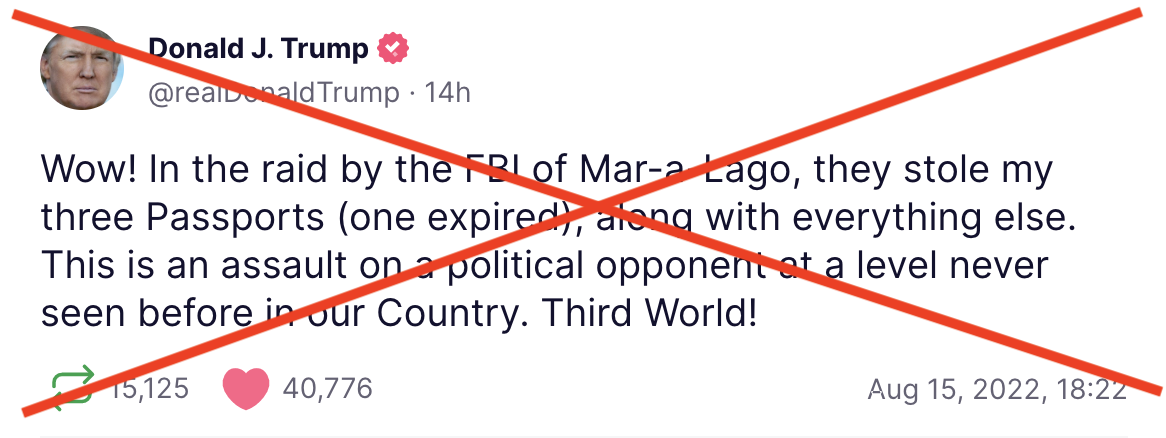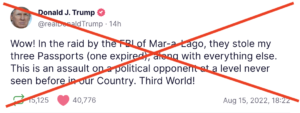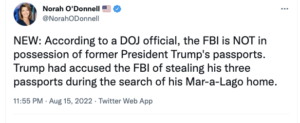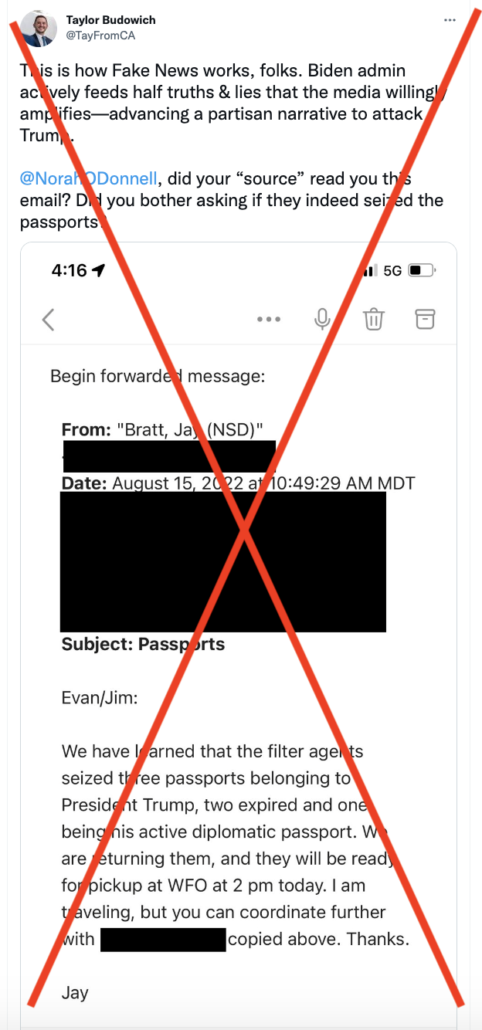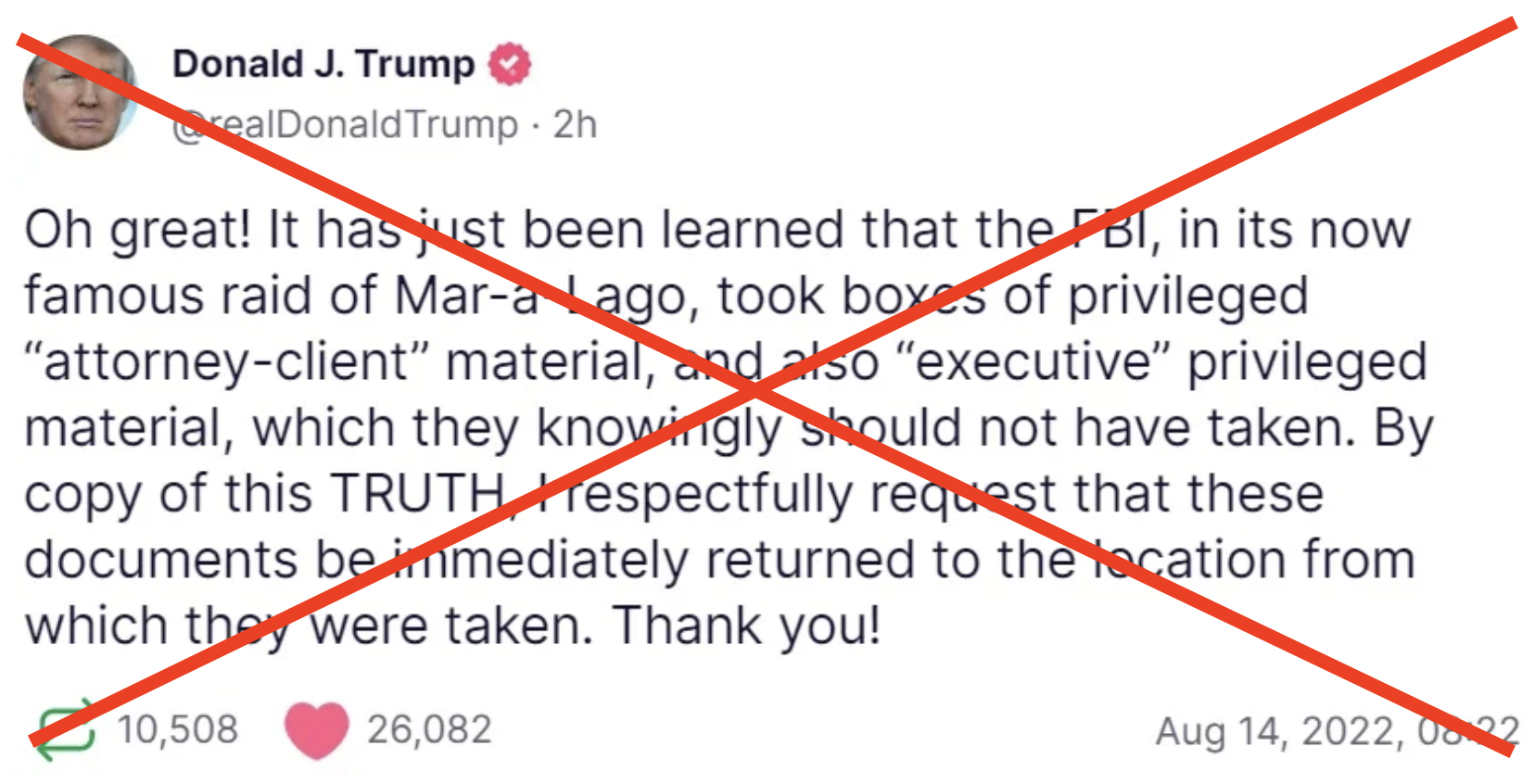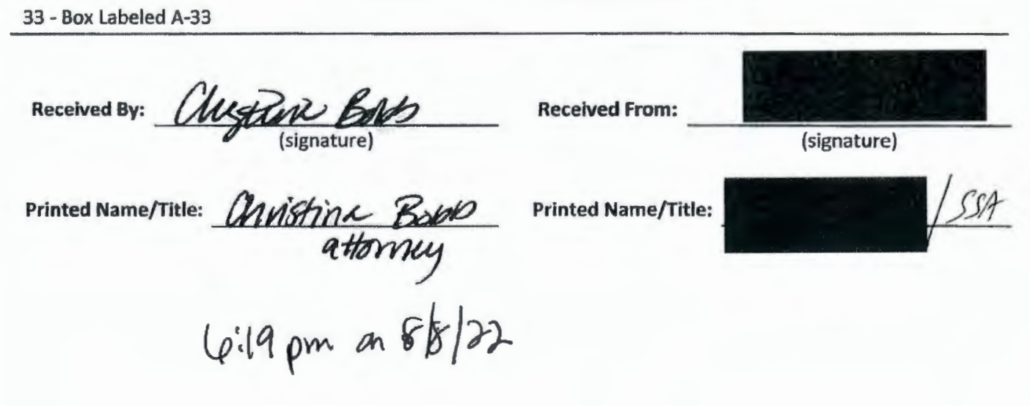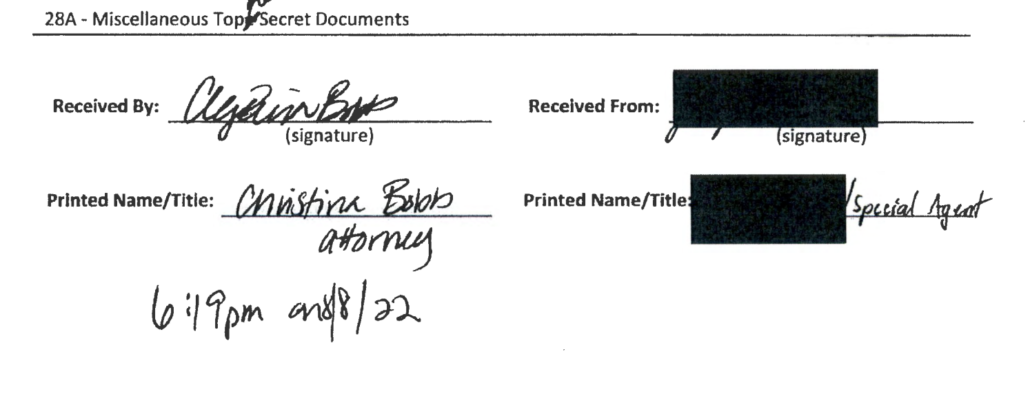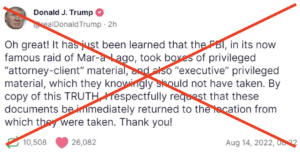According to Donald Trump’s whack-ass filing the other day, he personally has yet to receive a subpoena in the investigation of his suspected theft of classified documents and obstruction of one or more investigations by hiding, ripping, or flushing documents. Instead, his hospitality company and Christina Bobb have.
DOJ sent the June 22 subpoena for surveillance footage at Mar-a-Lago to the Custodian of Records at the Trump Organization.
On June 22, 2022, the Government sent a subpoena to the Custodian of Records for the Trump Organization seeking footage from surveillance cameras at Mar-a-Lago. At President Trump’s direction, service of that subpoena was voluntarily accepted, and responsive video footage was provided to the Government.
The WaPo explained that it was sent to Trump Organization, not Trump, because that’s who actually owns Mar-a-Lago.
By the way, that means that Trump Organization could have, but thus far has not, intervened in the August 8 search as well as Donald. Indeed, that may have been what Magistrate Judge Bruce Reinhart, who has read the search warrant affidavit, was alluding to when he memorialized his order asking DOJ to provide more justification for its review. He noted that neither Trump nor any other “purported owner” of Mar-a-Lago had intervened.
Neither Former President Trump nor anyone else purporting to be the owner of the Premises has filed a pleading taking a position on the Intervenors’ Motions to Unseal.
In fact, when Trump intervened in the Michael Cohen search in 2018 — and did so after just four days — he did so in the persons of Trump Organization lawyer Alan Futerfas and Futerfas’ partner Ellen Resnick. Having Trump Organization ask for a Temporary Restraining Order would have been another way to intervene in more timely and competent way than Trump has done so far — but Trump Organization has been rather distracted preparing for depositions in Tish James’ investigation and the October trial testimony of their former CFO in a New York City trial.
In any case, it is totally normal for a grand jury to subpoena the “Custodian of Records” of a corporation from which it wants records. In the case of the surveillance video (and presumably a renewed subpoena after the search), that just happened to place the legal obligation to respond on an entity that has a whole heap of other legal problems right now.
In Trump’s whack filing, though, the hero of our story Donald J. Trump magnanimously instructed Trump Organization to accept service and provide the video (it appears that Eric or the failson would have been the ones legally to give that order), otherwise known as “complying with a subpoena.”
It’s the other subpoena I find more interesting.
On May 11, 2022, Movant voluntarily accepted service of a grand jury subpoena addressed to the custodian of records for the Office of Donald J. Trump, seeking documents bearing any classification markings. President Trump determined that a search for documents bearing classification markings should be conducted — even if the marked documents had been declassified — and his staff conducted a diligent search of the boxes that had been moved from the White House to Florida. On June 2, 2022, President Trump, through counsel, invited the FBI to come to Mar-a-Lago to retrieve responsive documents. [italics Trump’s, bold mine]
There’s a lot going on in this passage. Whereas the earlier passage described the government sending the subpoena, here Trump’s team only describes that service for it was accepted, “voluntarily,” it notes in italics, which is not a thing.
It’s a subpoena, you don’t get a choice.
The passage dates that acceptance to May 11 — the day after, we now know, that the Acting Archivist Debra Steidel Wall had informed Evan Corcoran, acting as Trump’s attorney, that she would not respect Trump’s “protective assertion of executive privilege.” The dates are almost certainly related, but we can’t be sure how, because we can’t be sure when DOJ subpoenaed Trump for the rest of the classified documents he was hoarding.
More interesting, to me, is the way this passage introduces a second role (and third) it will rely on heavily to describe what must be a core focus of the obstruction investigation, that Custodian of Records of the Office of Donald J. Trump. The Custodian of Records accepted the subpoena (and so would be on the legal hook for it), “his staff conducted a diligent search,” and then his counsel — Corcoran — “invited” Jay Bratt to come get the additional classified documents that would constitute proof Trump had violated the Espionage Act. Trump doesn’t reveal who did the search (though other reports have said Corcoran did it). But as presented, this process implicated three different roles, at least one role performed by a guy who signed this very whack filing that works so hard to obscure all this.
All that is set-up for the meeting on June 3, which will carry a great deal of legal import going forward, not least in an inevitable Fourth Amendment suppression motion. Here’s the tale the whack filing, written in part by Evan Corcoran, tells:
The next day, on June 3, 2022, Jay Bratt, Chief of the Counterintelligence and Export Control Section in the DOJ’s National Security Division, came to Mar-a-Lago, accompanied by three FBI agents. President Trump greeted them in the dining room at Mar-a-Lago. There were two other attendees: the person designated as the custodian of records for the Office of Donald J. Trump, and counsel for President Trump. Before leaving the group, President Trump’s last words to Mr. Bratt and the FBI agents were as follows: “Whatever you need, just let us know.”
Responsive documents were provided to the FBI agents. Mr. Bratt asked to inspect a storage room. Counsel for President Trump advised the group that President Trump had authorized him to take the group to that room. The group proceeded to the storage room, escorted by two Secret Service agents. The storage room contained boxes, many containing the clothing and personal items of President Trump and the First Lady. When their inspection was completed, the group left the area.
Once back in the dining room, one of the FBI agents said, “Thank you. You did not need to show us the storage room, but we appreciate it. Now it all makes sense.” Counsel for President Trump then closed the interaction and advised the Government officials that they should contact him with any further needs on the matter.
This passage is designed to portray Trump’s response as completely cooperative, which is set up for a claim the warrant was not necessary. As such, it describes an FBI comment undoubtedly designed, legally, to reiterate that a consensual search — of the storage room — was indeed consensual, as if it means something else, that the FBI had had all its questions answered. But when Trump eventually receives the affidavit that relies on this FBI agent’s first-hand observations during a consensual search to show probable cause for a warrant to come back and search the storage room further, Trump will have ceded the consensual nature of it and therefore his ability to suppress the August 8 search.
Evan Corcoran will one day be underbussed for agreeing (and in this filing, attesting) to this consensual search; given the way he’s portrayed in this WaPo story, the underbussing may have already begun. But for now, it is the stated version Trump wants to tell.
What I’m interested in, though, is that according to this version — a version that makes absolutely no mention of the declaration Jay Bratt required Trump’s team provide after that consensual search of the storage room — the roles that Corcoran and Christina Bobb played were different, and different in a way that holds legal weight. They don’t name names, but because Corcoran is known to have done the things attributed to “counsel” in this whack filing, he must be the counsel in the meeting and Bobb, by process of elimination, was the Custodian of Records. So Bobb was the person on the hook for the subpoena response.
As a reminder, here’s the most complete description of the declaration that Corcoran neglected to mention in the whack filing, from an NYT article that studiously avoids mentioning that obstruction is one of the crimes under investigation.
Mr. Bratt and the agents who joined him were given a sheaf of classified material, according to two people familiar with the meeting. Mr. Corcoran then drafted a statement, which Ms. Bobb, who is said to be the custodian of the documents, signed. It asserted that, to the best of her knowledge, all classified material that was there had been returned, according to two people familiar with the statement.
Bobb, performing the role as the Custodian of Records and so the person on the legal hook for the search, is the one who signed the declaration, based off a search that unnamed Trump “staff” members — described as a third role separate from that of Custodian of Records Christina Bobb and counsel Evan Corcoran — conducted.
Who knows whether Bobb really played the legal function of Custodian of Records at the Office of Donald J. Trump? I’ll come back to that in a bit.
Whatever Bobb really is, though, three pages later, Trump’s Custodian of Records gets a dizzying demotion to one of “three attorneys in the general area” who showed up to observe the search. That demotion may serve the legal function of justifying a claim, made another 11 pages later, that the search warrant receipts Bobb signed do not meet the standards required by Rule 41.
Among other actions taken after being notified of this unprecedented event, counsel for President Trump contacted three attorneys in the general area who agreed to go to Mar-a-Lago. Once they arrived, they requested the ability to enter the mansion in order to observe what the FBI agents were doing, which the Government declined to permit.
After approximately nine hours, the FBI concluded its search. An FBI agent provided one of the attorneys who had been waiting outside for nearly the full nine hours with a copy of the Search Warrant. TheFBI also provided a three-page Receipt for Property. Receipt for Property
[Case 9:22-mj-08332-BER, ECF 17 at 5-7 of 7]. That list provided almost no information that would allow a reader to understand what was seized or the precise location of the items.
[snip]
In addition, Movant requests that this Court direct the United States to prepare and provide a specific and detailed Receipt for Property. See Fed. R. Crim. P. 41(f). The “Receipt For Property” provided to Movant on August 8, 2022 is so vague and lacking in specificity that the reader does not know what was seized from Movant’s home.
[snip]
Movant submits the current Receipt for Property is legally deficient. Accordingly, the Government should be required to provide a more detailed and informative Receipt For Property, which states exactly what was seized, and where it was located when seized. In addition, Movant requests that the Court provide him with a copy of the inventory. This, along with inspection of the full Affidavit, is the only way to ensure the President can properly evaluate and avail himself of the important protections of Rule 41. [my emphasis]
Rolling Stone has a piece explaining that this whack filing is not actually the significant Fourth Amendment filing we were promised. That one, a bid to demand that Trump get these files back, is still coming.
[T]he former president’s legal team appears to be working to retrieve at least some of the papers seized during the Aug. 8 federal search. In recent days, the Trump team — led by former federal prosecutor Evan Corcoran — has been quietly prepping additional legal arguments and strategies to try to pry back material that the feds removed from the ex-president’s Florida abode and club, the sources say. Those measures include drafting a so-called “Rule 41(g) motion,” which allows “a person aggrieved by an unlawful search and seizure of property” to “move for the property’s return,” according to the Federal Rules of Criminal Procedure.
This would be a follow-up measure to the lawsuit, filed Monday by Trump and his attorneys, calling for the appointment of a special master to review the Mar-a-Lago materials for potentially privileged materials. It is unclear when the ex-president’s lawyers plan to file a subsequent motion, which people close to Trump expect to be more narrowly tailored than what the former president apparently wants.
But this whack filing is meant to lay the groundwork for the future promised significant Fourth Amendment whack filing.
And the success of both depends on a claim that poor Christina Bobb, who in her role as the Custodian of Records is either a witness or suspect in the obstruction side of this investigation, was on the day of the search just a pretty little lawyer who happened to be walking her dog in the neighborhood, and who asked the nice FBI agents to let her watch the search but wasn’t allowed to, which is why she signed off on the receipt without asking for more details on the front end. This entire scheme will fail when the FBI points out that a suspected co-conspirator didn’t do the due diligence Trump is now claiming (falsely) is legally required according to the standards of Rule 41.
It would almost certainly fail anyway, but it will especially fail when DOJ points out that Bobb is not just some lady walking her dog in the neighborhood, but played the role of the Custodian of Records, and so had the competence to demand a more complete receipt on the day of the search, but did not. The Office of Donald J. Trump has effectively already waived the issue of the receipts.
But consider the import of the claim that Christina Bobb functioned at the Custodian of Records for the Office of Donald J. Trump, particularly given Paul Sperry’s claim (h/t Ron Filipkowski) that Trump withheld these documents because he knew that if he turned them over, the Archives would in turn provide them to the January 6 Committee (and now, DOJ’s January 6 investigation).
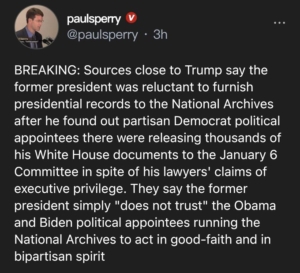
Christina Bobb is not only not just a lady walking her dog in the neighborhood of Mar-a-Lago, she also played a key role in the coup attempt.
She was the first author of the draft Executive Order attempting to seize the voting machines.
That document is nearly identical to a draft executive order the National Archives has shared with the Jan. 6 committee, and that POLITICO published last month. Metadata on the document says it was created by a user named Christina Bobb, and later updated by an unnamed person. A One America News anchor by that name was involved in Giuliani’s work for Trump, and previously worked in the Department of Homeland Security during the Trump administration.
The Washington Post reported that Bobb was on at least one conference call about setting up alternate slates of electors for the Jan. 6 certification vote, and that she was at the Willard hotel “command center” that Trump’s allies used as a home base to coordinate efforts to overturn the election. The emails did not cast light on Bobb’s ties to the draft executive order beyond her name’s appearance in the metadata, and she did not respond to requests for comment.
And as Seth Abramson first confirmed, after leaving the Cannon Office Building at 1PM on January 6, Bobb spent the rest of the day in the Willard right alongside Rudy.
While the Archives spent a year trying to get Trump to return identified documents, some reports say things came to a head in December.
WaPo reports that Trump personally oversaw the packing of boxes to be returned to the Archives, and they were retrieved on January 17.
What followed was a tortured standoff among Trump; some of his own advisers, who urged the return of documents; and the bureaucrats charged by the law with maintaining and protecting presidential records. Trump only agreed to return some of the documents after a National Archives official asked a Trump adviser for help, saying they may have to soon refer the matter to Congress or the Justice Department.
Nearly a year later, on Jan. 17, 2022, Trump returned 15 boxes of newspaper clips, presidential briefing papers, handwritten notes and assorted mementos to the National Archives. That was supposed to settle the issue.
[snip]
It could not be determined who was involved with packing the boxes at Mar-a-Lago or why some White House documents were not sent to the Archives, though people familiar with the episode said Trump oversaw the process himself — and did so with great secrecy, declining to show some items even to top aides. Philbin and another adviser who was contacted by the Archives in April have told others that they had not been involved with the process and were surprised by the discovery of classified records.
What’s clear is that effort to pack up boxes, an effort Trump personally oversaw, was happening during the same period when Trump was trying to prevent the Archives from handing over records to the January 6 Committee.
October 18, 2021: Trump sues to prevent the Archives from complying with January 6 Committee subpoena.
November 10, 2021: Judge Tanya Chutkan denies Trump’s motion for an injunction against NARA. (While it wouldn’t appear in the affidavit, in recent days Paul Sperry has claimed that Trump withheld documents to prevent NARA from turning them over to the January 6 Committee.)
December 9, 2021: DC Circuit upholds Judge Chutkan’s decision releasing Trump records to the January 6 Committee.
On January 17, 2022, NARA retrieved 15 boxes of Records from 1100 S. Ocean Blvd, Palm Beach, FL.
January 19, 2022: SCOTUS upholds Chutkan’s decision.
Any tampering with already packed boxes may have happened after the DC Circuit ruled in favor of the Committee, but in any case, in courts in DC, such tampering happened during a period when Trump was legally fighting to hide records that would implicate him … and Christina Bobb.
I’m still not convinced that the January 6 investigation(s) are the primary thing that Trump was trying to retain, though I think there’s a decent chance they’re included among the investigation(s) that Trump is suspected of obstructing by hiding, ripping, and flushing documents.
But to the extent that Trump was attempting to obstruct parallel investigations of his efforts to steal the 2020 election, Bobb’s role as both a co-conspirator in the coup plan and as Custodian of Records would raise additional concerns for the FBI.

